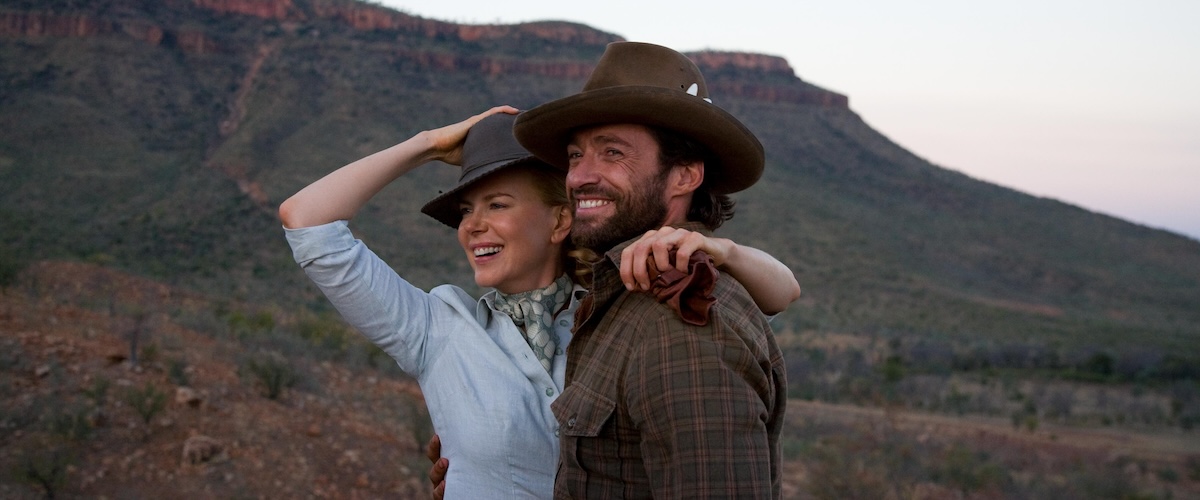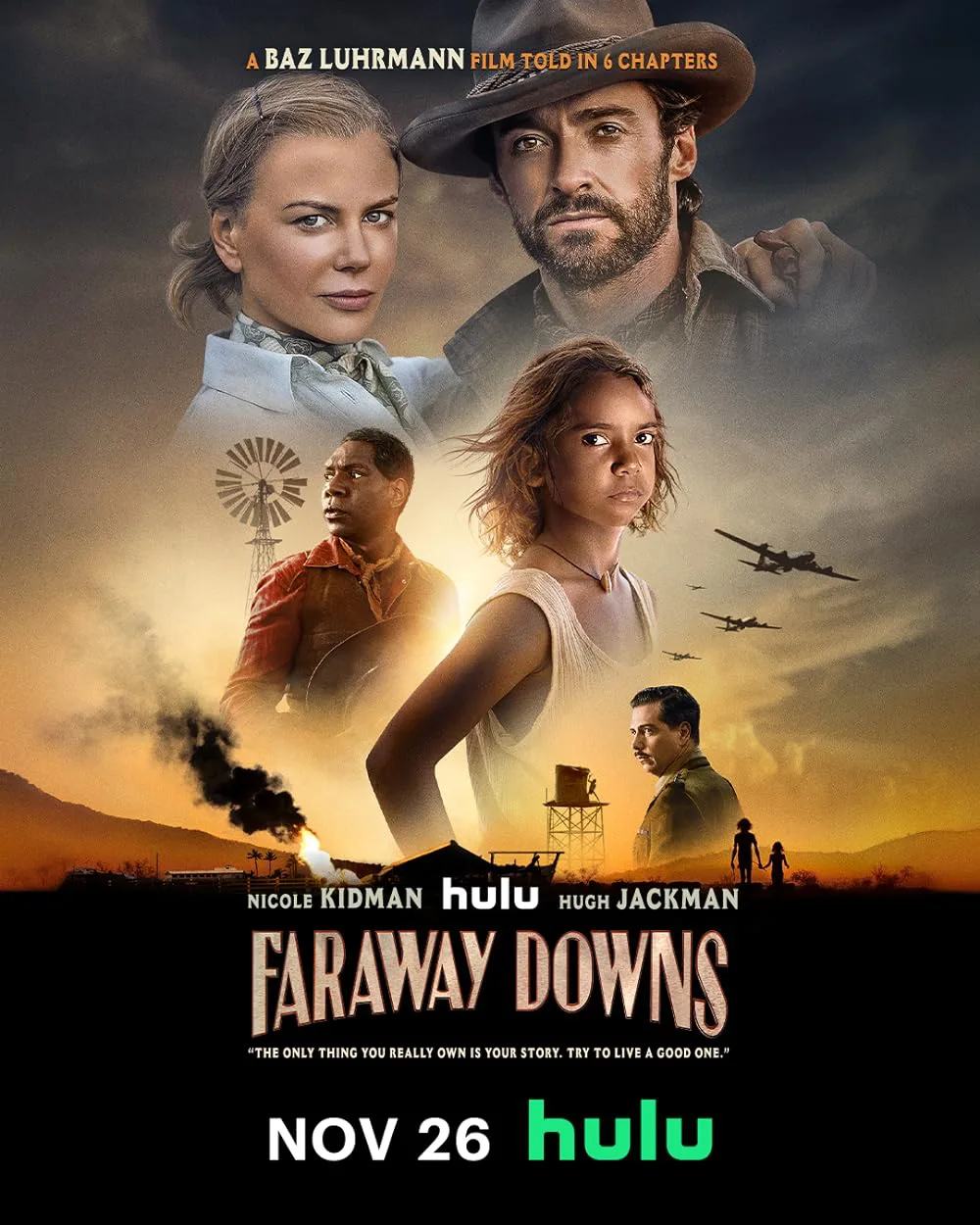During the pandemic, Baz Luhrmann decided to revisit his 2008 epic "Australia," a film that already stressed bladders at 165 minutes. (I don't think anyone left the film hoping it was longer.) He not only wanted to bring back the original downer ending that was focus-grouped out after bad test screenings, but he wanted to expand on a few of the ideas about the Indigenous people of the title country. The result is "Faraway Downs," a six-part limited series that takes the whole of "Australia" and adds back some deleted scenes, new music, and well-timed episode breaks that almost feel like they were there all along. (Does Luhrmann write six-act screenplays?) The project is an interesting one in that "Faraway Downs" still has many of the same issues as "Australia," but the new construction not only makes some of them more tolerable but reminds one how generally awful the form looks now. With so much blandly composed, digitally-shot television that barely considers its aesthetic, there's something kind of startling about watching a streaming series that looks like a film. Because it is.
"Faraway Downs" opens with a crawl that informs us about the treatment of Indigenous children in Australia as well as what would happen to part of the region as the Japanese continued their assault after the bombing of Pearl Harbor. It's not only an acknowledgment that what's unfolding is on land formed by tragedy but a direct form of foreshadowing that fits Luhrmann's old-fashioned cinematic sensibility. All the romance that's about to follow? Tragedy is around the corner.
Luhrmann's riff on "Gone with the Wind" and "The African Queen" opens in September 1939 with the introduction of Lady Sarah Ashley (Nicole Kidman), whose husband is far away at their massive cattle ranch in Australia that gives the show its new title. She heads there to obtain a divorce from the philanderer, only to find that he's dead, leaving her in charge of the estate. Of course, the reluctant foreigner is drawn to the land and its people, especially the charming Nullah (Brandon Walters) and the charismatic Drover (Hugh Jackman). The Kidman/Jackman dynamic works in an old-fashioned sense. Of course, Ashley will eventually be drawn to Drover's gruff exterior. And, of course, Drover will fall for the princess from a far-off land.
However, the old-fashioned aspects of "Faraway Downs" bring with them some anachronistic storytelling elements, with Luhrmann too often portraying Nullah and the other Indigenous people in a magical light. His efforts to improve that aspect here are notable from the beginning, including opening credits designed by Indigenous artists, a new theme from Budjerah, and a new song by Anpuru. Luhrmann said to The Guardian that he wanted to "work with all these young emerging musical artists and graphic artists," and that's admirable, even if some of the filmmaking still treats Nullah more like a catalyst for the English aristocrat's salvation than an actual character himself. Luhrmann reportedly wanted to flip the script of "Gone with the Wind" and tell this story from a First Nations child's point of view. He doesn't quite get there, even in this extended edition, but he does come closer than before.
The new construction of "Faraway Downs" is interesting because it's almost like it could have been designed as a series all along. Hulu allowed Luhrmann to cut the film into six chapters of wildly divergent lengths, with the open and close landing around 45-50 minutes and a pair in between clocking in under 30 minutes. In total, the series runs around 205 minutes once you excise the credits in each episode, so it's notably longer than the film (about 40 minutes). Still, you never feel the awkward insertion of deleted scenes like in other projects. It's pretty seamless.
It's also just pretty. Maybe I'm just exhausted by the low lighting of the content algorithm, but "Faraway Downs" simply looks better than most modern TV. Mandy Walker (who was Oscar-nominated for "Elvis") nails the romantic landscapes needed for a film like this one. If "Faraway Downs" doesn't quite reclaim a film from the dustbin of history, it does remind one how dusty most television still allows itself to look.
The entire series was screened for review. Available on Hulu on Sunday, November 26th.




















